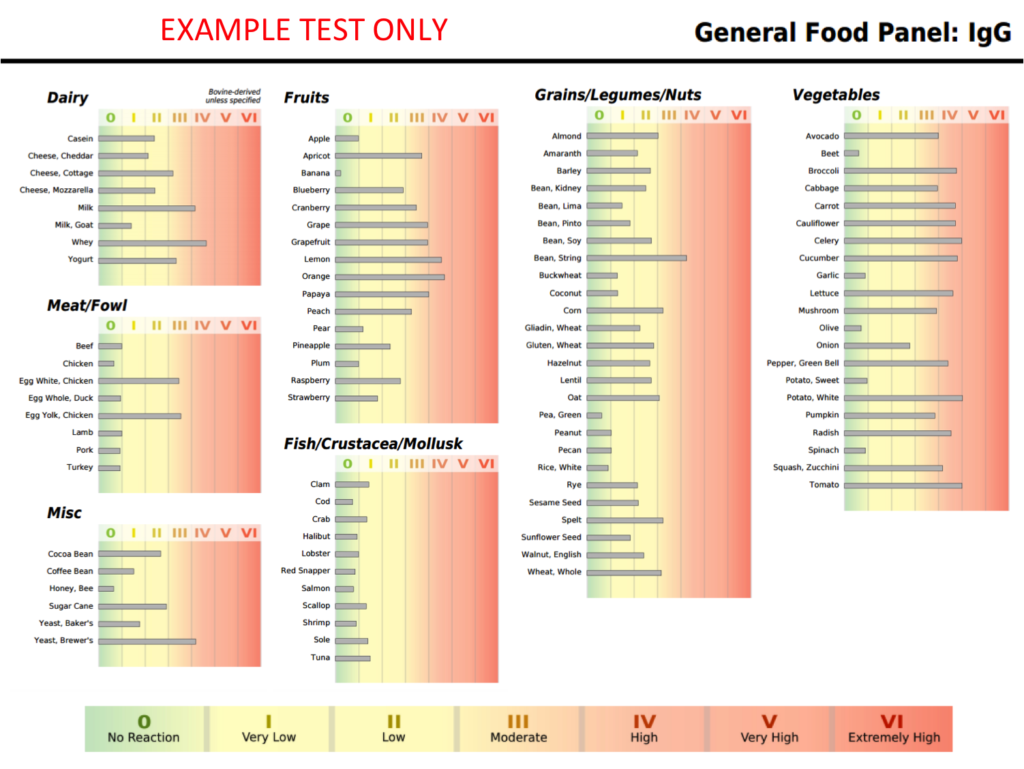Your questions answered!

Today, I want to share something truly transformative – IgG Food Intolerance Testing!
Ever wondered why some foods make you feel bloated, tired, or just not your best self? 🤔 Well, this incredible test might just hold the key to your well-being! 🗝️
Have you always wondered what foods seem to upset your digestive system? Never quite able to put your finger on the food, or foods that set off bloating, fatigue, gas, constipation, diarrhoea, skin conditions, headaches, etc? Do you have a history of trying exhausting food diaries that are time consuming and you never seem to get a solid result, or like me – you give up and don’t finish the task? Many of us have tried elimination diets to determine the cause of gut issues but without proper guidance the results can be varied and the process exhausting, it can also be difficult if you have a family to cook for.
IgG Food Intolerance Testing is a revolutionary way to uncover hidden sensitivities your body might have to certain foods. Unlike allergies, intolerances can be subtle and might not show immediate symptoms. This test helps us identify specific foods that could be causing inflammation, digestive issues, skin problems, and even mood swings! 🥑🍞 The best part is, you don’t have to consume these foods for accurate testing!
IgG food testing, also known as IgG food intolerance testing, is a type of blood test that aims to identify specific foods that may be causing adverse reactions in an individual’s body. Unlike immediate allergic reactions (which involve IgE antibodies and can cause rapid and severe symptoms like hives or anaphylaxis), food intolerances mediated by IgG antibodies are often delayed and may lead to a wide range of symptoms such as bloating, fatigue, headaches, joint pain, and skin issues.
During IgG food testing, a blood sample is taken from the individual, and it is tested against various food proteins to measure the levels of IgG antibodies present in response to each food. Elevated IgG antibody levels to specific foods suggest that the immune system recognizes these foods as potential threats, possibly causing inflammation and various symptoms.
You can eat your regular diet leading up to testing and there is no fasting required prior to the test.
There are different amounts of foods that are tested starting at the most common 40 foods and can go as high as 200 foods. The best way to determine the amount of foods you should get tested is to look at the list and see how many of the common foods that you eat are covered. These tests also accommodate vegetarians and vegan diets. The results come back similar to the picture with a ‘traffic light’ system of:
Green – low inflammatory foods
Yellow – mild inflammatory foods
Red – high inflammatory foods
Once the result comes back we can determine the pathway moving forward to help you ease any gastrointestinal, immune or skin symptoms, soothe inflammation, optimise your health and set you on a path to live your best healthy life!
5 facts about IgG Testing:
- Food intolerance symptoms are often delayed and can occur hours or days after consuming.
- Effects are usually reversible.
- Intolerances can involve many foods.
- It can be possible to reintroduce certain ‘Red’ foods after a period of avoidance.
- IgG antibodies bind to the proteins in certain foods, as it enters the blood & forms antibody-antigen immune complexes. These then deposit around the body creating various sources of inflammation & symptoms.
*There are two types of testing I use. One is a blood draw from Australian Clinical Labs and the other is a finger prick test you can do at home through Nutripath Labs. To discuss the difference between tests and costs – book an appointment today!
*No mark up is charged on testing, the price for the tests are what the labs charge and you pay them directly.
As with any medical test or dietary intervention, it’s crucial to consult a qualified healthcare provider, who can properly assess your symptoms and guide you toward the most appropriate and evidence-based approach for your individual needs.

